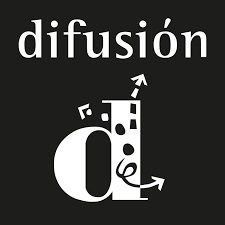Doctorate in
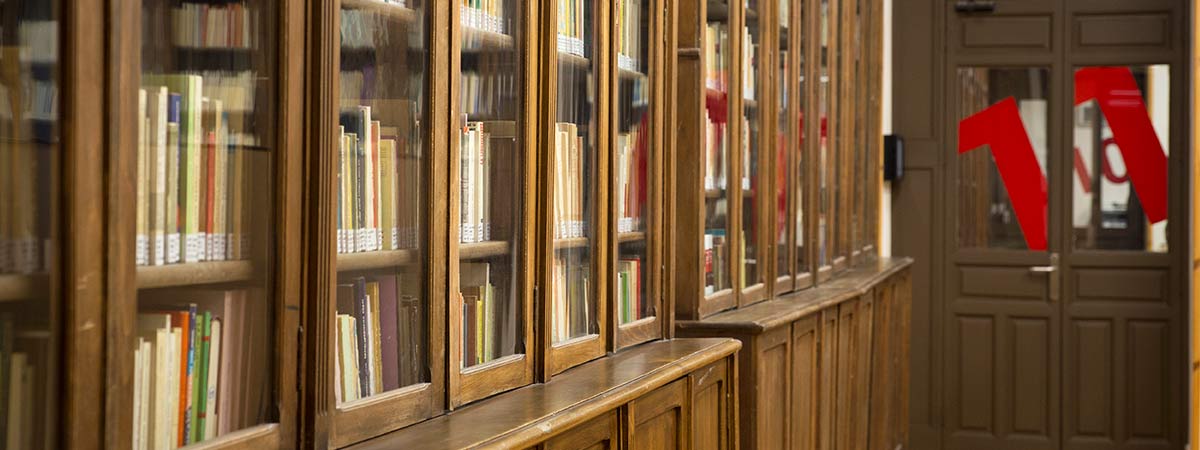
Pioneer program in training teachers
Nebrija University presents its new Doctorate Programme, called Doctorate in Applied Linguistics to Language Teaching, that comes up in a scientific, economic and social context characterized by the need to develop the multilingual competency of citizens.
In this respect, this programme aims to develop a line of research focused on applied linguistics to teaching based on the following subjects: Language acquisition and language learning, Sociolinguistics and Language Pragmatics, Linguistic Policies and their relationship with the learning of second, foreign languages or the bilingual condition, Corpus Linguistics, Evaluation and certification of linguistic competence or Professional application of the multilingual condition.
Access to the Doctorate Programme
Organization
Professors
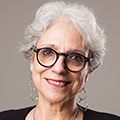 Dra. Juana M. Liceras
Juana Muñoz Liceras is an expert on linguistic theory and bilingual acquisition and she is also a renowed specialist in generative grammar. After graduating at the Complutense University of Madrid, she was awarded a Fulbright program grant to study at the University of Madison where she graduated with M.A. in Applied Linguistics. She moved to the University of Toronto where she obtained her PhD degree. She has been teaching and researching at the University of Ottawa since 1981, where she was named professor of the year (2014), vice-dean research at the Faculty of Arts (2014-2017), and Distinguished University Professor (2017-present).
Dra. Juana M. Liceras
Juana Muñoz Liceras is an expert on linguistic theory and bilingual acquisition and she is also a renowed specialist in generative grammar. After graduating at the Complutense University of Madrid, she was awarded a Fulbright program grant to study at the University of Madison where she graduated with M.A. in Applied Linguistics. She moved to the University of Toronto where she obtained her PhD degree. She has been teaching and researching at the University of Ottawa since 1981, where she was named professor of the year (2014), vice-dean research at the Faculty of Arts (2014-2017), and Distinguished University Professor (2017-present). Her research work lies on the study of language acquisition from a variety of perspectives on Universal Grammar (i.e. biological, psychological and linguistic) together with the use of longitudinal and experimental data, and it is focused on the analysis of a number of grammatical processes in the acquisition of bilingualism, second languages, immigrant languages and non-typical language development. More specifically, she has worked on bilingual first language acquisition examining the role of language dominance and how the directionality in the cross-linguistic influence between different pairs of languages can interfere or facilitate the acquisition process.
She is one of the editors-in-chief of the journal Languages, one of the two editors of the Revista Española de Lingüística Aplicada (RESLA), a member of the advisory board of John Benjamins’ book series Romance Languages and Linguistic Theory and Studies in Hispanic and Lusophone Linguistics, and a member of the advisory board of the journals Second Language Research, Borealis, Lengua y Migración, Journal of Spanish Language Teaching, Revista Nebrija de lingüística aplicada a la enseñanza de lenguas and Revista Canaria de Estudios Ingleses.
Juana M. Liceras is also the director of the LAR-LAB (Language Acquisition Research Laboratory) of the University of Ottawa and one of the contributors, together with Raquel Fernández Fuertes, of the bilingual English-Spanish corpus FerFuLice (freely available at CHILDES) and the bilingual L1 English/L1 French-L2 Spanish corpus Liceras-SLA (freely available at TALKBANK). She has been an invited professor and a plenary speaker at several American and European universities where she has given inspiring courses and presented to different generations of bilingualism and language acquisition scholars a great number of papers at cutting edge international conferences (e.g. EUROSLA, ISB, LSRL, HLS, etc.) and journals (e.g. Second Language Research, Probus, International Journal of Bilingualism, etc.).
She has supervised 31 PhD dissertations, 15 M.A. dissertations and 57 final projects in different universities. She has also been a paper reviewer in reputed journals (Linguistic Inquiry, Lingua, Bilingualism: Language and Cognition; Language Acquisition, Studies in Second Language Acquisition, Language Learning; Revista Española de Lingüística Aplicada; etc.) and publishing houses (John Benjamins, Cascadilla Press, Georgetown University Press).
Her vast research productivity has been granted from both Canadian and Spanish funding agencies and she has received several awards and honorable mentions from Canadian (Ten Most Influential Hispanic-Canadians in 2013; Professor of the Year, Faculty of Arts, University of Ottawa in 2014; Distinguished University Professor 2016- 2017, University of Ottawa) and Spanish institutions (Encomienda de la Orden del Mérito Civil, Spanish Ministry of International Affairs in 2008; "100 Españoles" Award, Marca España in 2014).
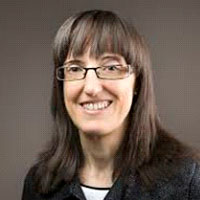 Dra. Susana Martin Leralta
Doctora por la Universidad de Bielefeld (Alemania) y Licenciada en Ciencias de la Información por la Universidad Complutense de Madrid. Obtuvo el Premio de Investigación ASELE 2008 por su tesis doctoral, realizada en el ámbito de la Lingüística aplicada. Desempeña el cargo de Decana de la Facultad de las Artes y las Letras en la Universidad Antonio de Nebrija, y es la responsable de los programas académicos de Lingüística aplicada y formación de profesores de español como lengua extranjera. Sus líneas de investigación son el aprendizaje de español como lengua de inmigración, la competencia estratégica en el aprendizaje de lenguas, la adquisición de las destrezas comunicativas de interacción oral y comprensión auditiva en lengua extranjera, y la evaluación de la competencia lingüística.
Dra. Susana Martin Leralta
Doctora por la Universidad de Bielefeld (Alemania) y Licenciada en Ciencias de la Información por la Universidad Complutense de Madrid. Obtuvo el Premio de Investigación ASELE 2008 por su tesis doctoral, realizada en el ámbito de la Lingüística aplicada. Desempeña el cargo de Decana de la Facultad de las Artes y las Letras en la Universidad Antonio de Nebrija, y es la responsable de los programas académicos de Lingüística aplicada y formación de profesores de español como lengua extranjera. Sus líneas de investigación son el aprendizaje de español como lengua de inmigración, la competencia estratégica en el aprendizaje de lenguas, la adquisición de las destrezas comunicativas de interacción oral y comprensión auditiva en lengua extranjera, y la evaluación de la competencia lingüística.Es miembro del Grupo de investigación LAELE (Lingüística aplicada a la enseñanza de lenguas extranjeras) de la Universidad Nebrija y de la red de grupos de investigación INMIGRA i+d de la Comunidad de Madrid. Es la investigadora principal del proyecto Emoción, memoria, identidad lingüística y aculturación emocional: su influencia en el aprendizaje de español como lengua de migración [FFI2017-83166-C2-2-R], dentro del Programa Estatal de Investigación, Desarrollo e Innovación (2017), así como del subproyecto del Grupo LAELE de la Universidad Nebrija en el Proyecto IN.MIGRA2-CM "La población migrante de la Comunidad de Madrid: estudio multidisciplinar y herramientas para la integración sociolingüística" [H2015/HUM-3404]. Ha sido IP de los proyectos Diploma LETRA -Certificación Lingüística para Trabajadores Inmigrantes en la Comunidad de Madrid- y COMUNÍCATE en español, ambos financiados por la Dirección General de Inmigración de la Consejería de Asuntos Sociales de la Comunidad de Madrid, y ha participado en otros proyectos de investigación de financiación pública, como el KYWAA: Proyecto de I+d de un modelo web 2.0 al servicio de la inteligencia colectiva en el aprendizaje lingüístico (Proyecto AVANZA Economía Digital i+d del MITyC, 2009).
Entre sus publicaciones se encuentran el libro Competencia estratégica para la comprensión auditiva en español como lengua extranjera (Ministerio de Educación, Cultura y Deporte), el manual didáctico Todo oídos y su Guía didáctica (Editorial Difusión), diversos artículos relacionados con la especialidad, en revistas como Lengua y Migración, ELUA, Pragmalingüística, Porta Linguarum o Círculo de Lingüística aplicada a la comunicación y capítulos en obras de referencia. Es evaluadora externa de las revistas Porta Linguarum y RedELE, miembro del comité científico del I Congreso internacional del Español en programas de Study Abroad (Alcalá de Henares, 2015) y miembro del comité organizador del Congreso Internacional Nebrija en Lingüística aplicada a la enseñanza de lenguas.
En el ámbito docente, imparte clase en los programas de postgrado de formación de profesores de español de esta Universidad y colabora habitualmente con otras instituciones nacionales e internacionales (Instituto Cervantes, Universidad Complutense de Madrid, HABE, Consejería de Educación de la Embajada española en Alemania, Universidad Pontificia Bolivariana de Medellín, entre otras). Ha dirigido numerosos trabajos de fin de Máster sobre el español como lengua de inmigración, dos tesis doctorales en el área de la lingüística aplicada a la enseñanza de español como lengua extranjera y dirige otras tres tesis en curso.
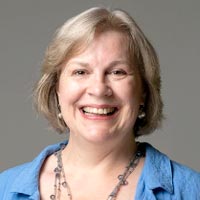 Dra. Maria Cecilia Ainciburu
Tiene 20 años de experiencia en investigación y 25 de docencia a nivel universitario. Es experta en temas de Lingüística aplicada, especialmente en Adquisición del léxico y en tratamiento de datos cuantitativos a partir de corpus de producción escrita y oral, nativa y no nativa.
Dra. Maria Cecilia Ainciburu
Tiene 20 años de experiencia en investigación y 25 de docencia a nivel universitario. Es experta en temas de Lingüística aplicada, especialmente en Adquisición del léxico y en tratamiento de datos cuantitativos a partir de corpus de producción escrita y oral, nativa y no nativa.Ha publicado más de 25 trabajos en revistas y congresos internacionales de reconocido prestigio, y ha dirigido o codirigido 9 tesis doctorales (4 más están en fase de finalización). Es un miembro activo de la comunidad científica internacional, actuando como revisor para diversas revistas y congresos periódicos de primer nivel en el campo de la adquisición de las Lenguas y como editor responsable para la Revista Nebrija de Lingüística aplicada a la Enseñanza de Lenguas (CIRC B).
Ha impartido cursos de grado y posgrado de Lengua española en la Universidad de Siena (Italia) y de formación de posgrado – Doctorado y Máster- en la Universidad Nebrija de Madrid. Ha elaborado materiales docentes publicados en editoriales especializadas como Edinumen, Difusión o Klett.
En 2001 inicia la investigación en Lingüística aplicada, con especial aplicación a la Didáctica del Español como Lengua Extranjera. Ha ido publicando numerosos trabajos sobre esta temática, de los que cabe destacar los realizados bajo la Coordinación de Graciela Vázquez (Universidad Libre de Berlín) que constituyen series de material didáctico basado en investigaciones y análisis de necesidades de estudiantes universitarios (colecciones Con dinámica y Vía rápida) y en los que ha sido responsable de la sección “Léxico”. El total de trabajos publicados sobre este tema acumula más de 20 citas. Durante los últimos años ha orientado su investigación hacia el estudio cuantitativo y cualitativo de corpus textuales de producción oral y escrita, nativa y no nativa de adultos bilingües. Parte de esa investigación la realizó bajo la dirección de la Dra. Marta Baralo Ottonello (Universidad Nebrija), directora de su tesis doctoral. Las publicaciones derivadas de esa tesis doctoral han acumulado más de 15 citaciones en los últimos 5 años.
Ha coordinado (hasta febrero 2016) el Período de Investigación tutelada del Programa de Doctorado en Lingüística aplicada a la Enseñanza de E/LE en la Universidad Nebrija (RD 778/98). Dentro de las actividades de posgrado, ha realizado seminarios de estudio sobre la Metodología de investigación cuantitativa y sobre Transferencia de resultados de investigación y ha tutelado unos 40 de trabajos de investigación (Trabajos de fin de master, DEA y doctorado). Ha participado en proyectos de investigación con informe de calificación positivo y publicación de los respectivos materiales en Italia y en Alemania, para fines específicos y con especial atención a la adquisición de léxico de alumnos universitarios y futuros traductores. Ha colaborado en la redacción de las pruebas nacionales como comisario externo de Español como lengua extranjera (Pruebas de “maturità” requeridas para el ingreso a la universidad) para el Ministero della Pubblica Istruzione en Italia y en los exámenes de Certificación de lenguas que requiere la Universidad de Siena (grupo Cambridge y certificaciones internas de español e inglés). Ha participado en Tribunales de Máster y Doctorado y edita la Revista Nebrija de Lingüística aplicada a la Enseñanza de Lenguas. Doctora en Lingüística por la Universidad de la Sorbonne (Francia, 2008) y Máster en enseñanza del Francés como Lengua Extranjera y Licenciada en Filología Española. Es también profesora de francés como lengua extranjera en grado, y de metodología de investigación y enseñanza de lenguas afines en postgrado.
Sus publicaciones resultan de sus principales líneas de investigación que son la lingüística cognitiva, la teoría de la psicomecánica y su aplicación a la enseñanza de lenguas extranjeras, los análisis de interlengua, los procesos de adquisición de lenguas afines, la enseñanza del francés a hispanoparlantes, del español a francófonos y la adquisición de lenguas en contextos de inmigración
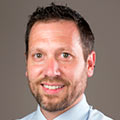 Dr. D. Jon Andoni Duñabeitia Landaburu
The main research interests of Prof. Jon Andoni Duñabeitia focus on the study of the neurobiological and cognitive substrates of multilingualism and reading throughout the life cycle. He aims to understand the cognitive processes associated with the acquisition of oral and written languages in monolingual and multilingual populations. Jon Andoni Duñabeitia Ph.D. is a researcher in Cognitive Science of Language who currently works as a Full Professor at the Facultad de Lenguas y Educación of the Universidad Nebrija. Prof. Duñabeitia is the Principal Investigator of the research group LAELE (Lingüística Aplicada a la Enseñanza de Lenguas Extranjeras). He is also an Affiliated Researcher of the Basque Center on Cognition, Brain and Language (BCBL), where he directed for some time the research group Multilingual Literacy. He is also a member of the Masters panel at the University of the Basque Country. Since Prof. Duñabeitia began his research career, he has published more than 80 articles in the main international scientific journals, demonstrating his maturity, solvency and scientific independence. In recent years, has been a member of the editorial board of Journal of Cognitive Psychology and Psicológica, and guest associate editor in the journals Frontiers in Psychology and Quarterly Journal of Experimental Psychology, leading the initiative of special monograph volumes. In addition, he has written several book chapters, and he has published several articles in non-specialized magazines of wide scope. Prof. Duñabeitia has demonstrated his research maturity by acting as Principal Investigator in several research projects financed externally in public calls of the Basque Government (2012 and 2015 calls), the Provincial Government of Gipuzkoa (2016 call), and of the Government of Spain (2012 and 2015 calls). Besides, he takes active part in the research team of different international projects funded by different agencies. Prof. Duñabeitia has also spent much of his time actively contributing to local, national and international scientific meetings by presenting a large number of posters and talks in the most recognized specialized forums in the field. He collaborates as a reviewer in around 40 different international journals in the field too, and he is a member of the board of the Spanish Society of Experimental Psychology (SEPEX). Recently, he has been included in the ranking of the 10 Spanish experimental psychologists with greater international scientific impact. As a consequence of all this, in 2016 the BBVA Foundation recognized his work awarding him a prize as Researcher and Cultural Creator.
Dr. D. Jon Andoni Duñabeitia Landaburu
The main research interests of Prof. Jon Andoni Duñabeitia focus on the study of the neurobiological and cognitive substrates of multilingualism and reading throughout the life cycle. He aims to understand the cognitive processes associated with the acquisition of oral and written languages in monolingual and multilingual populations. Jon Andoni Duñabeitia Ph.D. is a researcher in Cognitive Science of Language who currently works as a Full Professor at the Facultad de Lenguas y Educación of the Universidad Nebrija. Prof. Duñabeitia is the Principal Investigator of the research group LAELE (Lingüística Aplicada a la Enseñanza de Lenguas Extranjeras). He is also an Affiliated Researcher of the Basque Center on Cognition, Brain and Language (BCBL), where he directed for some time the research group Multilingual Literacy. He is also a member of the Masters panel at the University of the Basque Country. Since Prof. Duñabeitia began his research career, he has published more than 80 articles in the main international scientific journals, demonstrating his maturity, solvency and scientific independence. In recent years, has been a member of the editorial board of Journal of Cognitive Psychology and Psicológica, and guest associate editor in the journals Frontiers in Psychology and Quarterly Journal of Experimental Psychology, leading the initiative of special monograph volumes. In addition, he has written several book chapters, and he has published several articles in non-specialized magazines of wide scope. Prof. Duñabeitia has demonstrated his research maturity by acting as Principal Investigator in several research projects financed externally in public calls of the Basque Government (2012 and 2015 calls), the Provincial Government of Gipuzkoa (2016 call), and of the Government of Spain (2012 and 2015 calls). Besides, he takes active part in the research team of different international projects funded by different agencies. Prof. Duñabeitia has also spent much of his time actively contributing to local, national and international scientific meetings by presenting a large number of posters and talks in the most recognized specialized forums in the field. He collaborates as a reviewer in around 40 different international journals in the field too, and he is a member of the board of the Spanish Society of Experimental Psychology (SEPEX). Recently, he has been included in the ranking of the 10 Spanish experimental psychologists with greater international scientific impact. As a consequence of all this, in 2016 the BBVA Foundation recognized his work awarding him a prize as Researcher and Cultural Creator.
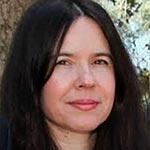 Dra. Eirini Mavrou
Irini Mavrou holds a Bachelor´s degree in Psychology (Aristotle University of Thessaloniki, Greece) and a Ph.D. in Applied Linguistics (Universidad Antonio de Nebrija, Madrid). During her undergraduate studies, she received a grant and two scholarships for academic excellence from the Greek State Scholarships Foundation (I.K.Y.). Her bachelor´s thesis (co-author with Stavroula Mavrou), examining students´ and teachers´ views on crisis situations and crisis intervention at school, was presented at the 9th Panhellenic Conference of Psychological Research of the Hellenic Psychological Society (Rhodes, Greece), and published later at the VII Scientific Annals of the Faculty of Philosophy (School of Psychology, Aristotle University).
Dra. Eirini Mavrou
Irini Mavrou holds a Bachelor´s degree in Psychology (Aristotle University of Thessaloniki, Greece) and a Ph.D. in Applied Linguistics (Universidad Antonio de Nebrija, Madrid). During her undergraduate studies, she received a grant and two scholarships for academic excellence from the Greek State Scholarships Foundation (I.K.Y.). Her bachelor´s thesis (co-author with Stavroula Mavrou), examining students´ and teachers´ views on crisis situations and crisis intervention at school, was presented at the 9th Panhellenic Conference of Psychological Research of the Hellenic Psychological Society (Rhodes, Greece), and published later at the VII Scientific Annals of the Faculty of Philosophy (School of Psychology, Aristotle University). During her postgraduate studies, she gave seminars on quantitative research and statistical analysis in Applied Linguistics. She also provided statistical analysis assistance to graduate students and professors, collaborating on the development of the methodology and on the presentation of their research results, for which she received mention in several published Ph.D. thesis. In January 2017 she received the Extraordinary Ph.D. Award by Universidad Nebrija for her Ph.D. dissertation entitled "Working memory and cognitive complexity in the written expression of Greek learners of Spanish as a foreign language". From February 2016 to August 2018, she was the academic coordinator of the Master´s program in Applied Linguistics to the Teaching of Spanish at Universidad Antonio de Nebrija. She has taught the subjects of Psycholinguistics and Interlanguage, Research Design and Data Analysis in Applied Linguistics (Master´s program in Applied Linguistics to the Teaching of Spanish), Learning processes and Strategies of SFL (Master´s program in Didactics of Spanish) and Psychometrics (Bachelor´s degree program in Psychology).
She has supervised up to 10 Master´s thesis, 5 of them focused on the impact of memory and/or emotion to second language acquisition, and 5 Ph.D. thesis (four of which still in progress) on topics related to second language assessment, emotional expression, and emergent literacy in migrant learners of Spanish. She is a member of the research group LAELE (Lingüística Aplicada a la Enseñanza de Lenguas Extranjeras) and has participated in the projects IN.MIGRA2-CM [H2015/HUM-3404], Erasmus+ KA201 [2016-1-ES01-KA201-025491 (2016-2018)] and “Emoción, memoria, identifidad lingüística y aculturalción emocional [Emotion, memory, linguistic identity, and emotional acculturation] – EMILIA” [FFI2017-83166-C2-2-R]. She has also awarded scholarships for short-term stays at the University of Edinburgh (ERASMUS+ Mobility Program) and at Birkbeck, University of London, where she has been conferred the title of Honorary Research Fellow.
Her research interests include psycholinguistic mechanisms underlying foreign language learning and acquisition, attention and memory processes, analysis of written discourse and Spanish as a language for migrants. Her most recent research interests are focused on the interaction between memory and emotion/emotional intelligence, and their influence on second language written and oral production.
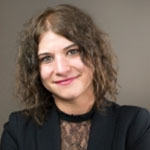 Dra. Ocarina Masid Blanco
Coordinadora académica
Doctora en Lengua española por la Universidad Complutense de Madrid (UCM), Máster Universitario en Español como segunda lengua por la UCM y Licenciada en Filología Hispánica por la Universidad Complutense de Madrid.
Dra. Ocarina Masid Blanco
Coordinadora académica
Doctora en Lengua española por la Universidad Complutense de Madrid (UCM), Máster Universitario en Español como segunda lengua por la UCM y Licenciada en Filología Hispánica por la Universidad Complutense de Madrid. Es miembro del grupo de investigación LAELE (Lingüística aplicada a la enseñanza de lenguas extranjeras) de la Universidad Nebrija, de la red de grupos de investigación INMIGRA i+d de la Comunidad de Madrid. Sus líneas de investigación, en el marco de Lingüística cognitiva, se dirigen al impacto emocional de la metáfora y el lenguaje figurado en L1 y LE, su relación con otros procesos cognitivos y las aplicaciones didácticas de la teoría cognitiva de la metáfora y otros enfoques para la enseñanza-aprendizaje del léxico en ELE. Además, está interesada en metodologías activas (aprendizaje cooperativo, gamificación, clase invertida,) y TIC para la enseñanza del español y su impacto emocional en el aprendizaje.
Miembro investigador de cinco proyectos: “Emoción, memoria, identidad lingüística y aculturación emocional: su influencia en el aprendizaje de español como lengua de migración” [FFI2017-83166- C2-2-R], del Programa Estatal de Investigación, Desarrollo e Innovación; IN.MIGRA3-CM: “La población migrante en la Comunidad de Madrid: factores lingüísticos, comunicativos, culturales y sociales del proceso de integración y recursos lingüísticos de intervención” [H2019/HUM5772] e IN.MIGRA2-CM "La población migrante de la Comunidad de Madrid: estudio multidisciplinar y herramientas para la integración sociolingüística" 2015/HUM-3404], ambos de la Convocatoria de Investigación de la Comunidad de Madrid en Ciencias Sociales y Humanidades, cofinanciada por el Fondo Social Europeo, así como Diploma LETRA-Certificación Lingüística para Trabajadores Inmigrantes y Alteritas, ambos financiados por la Dirección General de Inmigración de la Consejería de Asuntos Sociales de la Comunidad de Madrid.
Cuenta con publicaciones científicas en revistas de impacto (SCOPUS, JCR), capítulos de libro, una monografía en la editorial Arco/Libros (SPI) y ponencias en congresos internacionales. Ha impartido seminarios y conferencias en diversas instituciones. Ha dirigido dos tesis doctorales y actualmente dirige otras cinco en curso.
En el ámbito docente ha participado en dos proyectos de innovación y mejora de la calidad docente del Vicerrectorado de Evaluación de la Calidad de la Universidad Complutense de Madrid y del Vicerrectorado de Ordenación Académica de la Universidad Nebrija.
Es profesora de los posgrados en Lingüística aplicada a la enseñanza de ELE y en Didáctica de ELE, que, además, ha dirigido durante 6 años.
 Dra. Mercedes Perez Serrano
Universidad Complutense de Madrid-
The main research interests of Mercedes Pérez Serrano focus on the study of the acquisition of vocabulary and phraseology in foreign language learners. She aims to contribute to our understanding on how lexical units are processed and remembered and how this relates to foreign language instruction.
Dra. Mercedes Perez Serrano
Universidad Complutense de Madrid-
The main research interests of Mercedes Pérez Serrano focus on the study of the acquisition of vocabulary and phraseology in foreign language learners. She aims to contribute to our understanding on how lexical units are processed and remembered and how this relates to foreign language instruction.She holds a PhD. In Spanish Language from the Universidad de Salamanca. Her thesis dissertation focuses on the acquisition, learning and teaching of lexical collocations in learners of Spanish as a foreign language. Mercedes Pérez currently works as a professor at the Facultad de Lenguas y Educación at Universidad Nebrija. She is a member of the research group LAELE (Lingüística Aplicada a la Enseñanza de Lenguas Extranjeras).
She has more than eight years of teaching experience in higher education both in Europe and in North America. She has taught Spanish language and culture at York University (Ontario, Canada) from 2010 to 2012 and at Columbia University (New York, United States). There, she developed the empirical research for her PhD. dissertation. She currently teaches BA and MA credit courses at Universidad Nebrija mainly on language and language teaching methodology.
The link between her teaching and her research is clear. Over the past few years, she has conducted several classroom based studies on the acquisition of vocabulary in Spanish as a foreign language learners.
From 2014, she is a member of the research project REDES TELECOLABORATIVAS PARA EL DESARROLLO DE LAS COMPETENCIAS TRANSVERSALES EN LA EDUCACION SUPERIOR (REDTELCOM/TELNETCOM EDU2014-54673-R). By analyzing the data gathered from university lessons where telecollaboration is integrated, the aim of this project is to discover the impact it has on the development of key competences for lifelong learning. These competences include the use of the foreign language, digital competences, learning to learn competences, social competences, sense of initiative and entrepreneurship and cultural awareness.
She is also a member of INMIGRA 2 "LA POBLACION MIGRANTE DE LA COMUNIDAD DE MADRID: ESTUDIO MULTIDISCIPLINAR Y HERRAMIENTAS PARA LA INTEGRACION SOCIOLINGUISTICA" (H2015- HUM3403), a research project funded by the Community of Madrid aimed at exploring ways of linguistic and cultural integration of migrant population in the region.
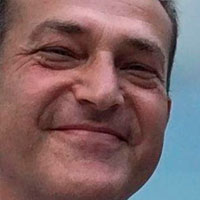 Dr. Krys Buyse
Universidad de Lovaina- Bélgica
Kris Buyse es en la KU Leuven (Bélgica) Coordinador de Investigación (Instituut voor Levende Talen / Leuven Language Institute, ILT) y de la Formación de Profesores de Lengua (Facultad de Letras). Imparte cursos en el ILT (para Fines Específicos: económicos y médicos), en la Facultad de Letras @ Leuven y @ Amberes (Lingüística, Didáctica, Expresión Escrita y Comunicación Interna) y en el campus KULAK de Cortrique (Español Económico). También es miembro del grupo de investigación LAELE en la Universidad Nebrija de Madrid (enseñanza, investigación por proyectos, formación y dirección de doctorado) y del grupo de investigación REALL (Research in Affective Language Learning) de la Universidad de Huelva. Sus proyectos se sitúan en los siguientes ámbitos (o en el cruce): didáctica y adquisición de la lengua (en particular la adquisición del léxico, la expresión escrita, la pronunciación,
feedback & assessment, motivación y afectividad), lingüística de corpus, lexicografía, lingüística contrastiva, LSP, CALL, ELE, Traductología.
Dr. Krys Buyse
Universidad de Lovaina- Bélgica
Kris Buyse es en la KU Leuven (Bélgica) Coordinador de Investigación (Instituut voor Levende Talen / Leuven Language Institute, ILT) y de la Formación de Profesores de Lengua (Facultad de Letras). Imparte cursos en el ILT (para Fines Específicos: económicos y médicos), en la Facultad de Letras @ Leuven y @ Amberes (Lingüística, Didáctica, Expresión Escrita y Comunicación Interna) y en el campus KULAK de Cortrique (Español Económico). También es miembro del grupo de investigación LAELE en la Universidad Nebrija de Madrid (enseñanza, investigación por proyectos, formación y dirección de doctorado) y del grupo de investigación REALL (Research in Affective Language Learning) de la Universidad de Huelva. Sus proyectos se sitúan en los siguientes ámbitos (o en el cruce): didáctica y adquisición de la lengua (en particular la adquisición del léxico, la expresión escrita, la pronunciación,
feedback & assessment, motivación y afectividad), lingüística de corpus, lexicografía, lingüística contrastiva, LSP, CALL, ELE, Traductología.Es autor y coautor de varios manuales, e.o. el recién publicado Campus Sur de la Editorial Difusión, un manual de ELE para la enseñanza universitaria.
Es reviews editor de la revista internacional ITL International Journal of applied linguistics (Benjamins), miembro del comité editorial de Journal of Spanish Language Teaching (Taylor & Francis), Revista Nebrija de Lingüística Aplicada a la Enseñanza de Lenguas (Nebrija University), Revista EnELE. Revista de enseñanza y aprendizaje de lenguas (Universitat Rovira i Virgili, Tarragona). Es revisor de unas 10 revistas, e.o. Computer Assisted Language Learning, Redele, RILE). Ha (co-)organizado 20 conferencias y simposios, y ha sido miembro del comité científico de otros 10.
Para más información sobre sus actividades, conferencias y publicaciones, véase http://www.kuleuven.be/wieiswie/en/person/00012653
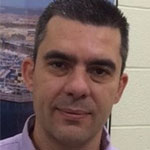 Dr. Manel Lacorte
University of Maryland
Manel Lacorte (B.A., University of Barcelona; M.A., University of Illinois at Chicago; Ph.D., University of Edinburgh, Scotland) is Associate Professor of Spanish Applied Linguistics, Director of Undergraduate Studies, and Director of the MA track in Hispanic Applied Linguistics at the University of Maryland, College Park. He has also worked as an Associate Director for the School of Spanish at Middlebury College (VT), since 2009, where he teaches graduate courses on Spanish language teaching pedagogy and methodology, and coordinates PArLAR, a research group focused on Program Articulation and Language Acquisition. Manel Lacorte’s research deals with second language (L2) and heritage language (HL) pedagogy and teacher education; L2 classroom interaction and context(s); applied linguistics; and sociopolitical issues in L2 and HL teaching and learning. He has published in journals such as Language Teaching Research, Foreign Language Annals, Journal of Spanish Language Teaching, Spanish in Context, Heritage Language Journal, Hispania, and Cultura & Educación, among others. He has co-authored Lingüística hispánica actual: guía didáctica y materiales de apoyo and Introducción a la lingüística hispánica actual: teoría y práctica (Routledge, 2018), and more recently Didáctica del español 2/L en el siglo XXI (Arco Libros, 2021). He has also edited or co-edited a number of volumes, among them Lingüística aplicada del español (Arco Libros, 2007), Spanish in the United States and Other Contact Contexts: Sociolinguistics, Ideology and Pedagogy (Iberoamericana/ Vervuert, 2009), The Routledge Handbook of Hispanic Applied Linguistics (Routledge, 2015), Multiliteracies Pedagogy and Language Learning: Teaching Spanish to Heritage Speakers (Longman, 2018), and Handbook of Spanish Language Teaching: Metodología, recursos y contextos para la enseñanza del español (Routledge, 2019). Manel Lacorte has been the guest editor of three special issues on Spanish language teaching methodology and Spanish teaching in the United States for the journals Miríada Hispánica (2013) Journal of Spanish Language Teaching (2014), and Revista Nebrija de Lingüística Aplicada (2020). Manel Lacorte is currently an associate editor for the Journal of Spanish Language Teaching, and co-editor of the Routledge Spanish Language Handbook Series. He has been an Oral Proficiency Interview (OPI) Certified Tester since 2007, and Certified Workshop Facilitator for the American Council on the Teaching of Foreign Languages (ACTFL) since 2018.
Dr. Manel Lacorte
University of Maryland
Manel Lacorte (B.A., University of Barcelona; M.A., University of Illinois at Chicago; Ph.D., University of Edinburgh, Scotland) is Associate Professor of Spanish Applied Linguistics, Director of Undergraduate Studies, and Director of the MA track in Hispanic Applied Linguistics at the University of Maryland, College Park. He has also worked as an Associate Director for the School of Spanish at Middlebury College (VT), since 2009, where he teaches graduate courses on Spanish language teaching pedagogy and methodology, and coordinates PArLAR, a research group focused on Program Articulation and Language Acquisition. Manel Lacorte’s research deals with second language (L2) and heritage language (HL) pedagogy and teacher education; L2 classroom interaction and context(s); applied linguistics; and sociopolitical issues in L2 and HL teaching and learning. He has published in journals such as Language Teaching Research, Foreign Language Annals, Journal of Spanish Language Teaching, Spanish in Context, Heritage Language Journal, Hispania, and Cultura & Educación, among others. He has co-authored Lingüística hispánica actual: guía didáctica y materiales de apoyo and Introducción a la lingüística hispánica actual: teoría y práctica (Routledge, 2018), and more recently Didáctica del español 2/L en el siglo XXI (Arco Libros, 2021). He has also edited or co-edited a number of volumes, among them Lingüística aplicada del español (Arco Libros, 2007), Spanish in the United States and Other Contact Contexts: Sociolinguistics, Ideology and Pedagogy (Iberoamericana/ Vervuert, 2009), The Routledge Handbook of Hispanic Applied Linguistics (Routledge, 2015), Multiliteracies Pedagogy and Language Learning: Teaching Spanish to Heritage Speakers (Longman, 2018), and Handbook of Spanish Language Teaching: Metodología, recursos y contextos para la enseñanza del español (Routledge, 2019). Manel Lacorte has been the guest editor of three special issues on Spanish language teaching methodology and Spanish teaching in the United States for the journals Miríada Hispánica (2013) Journal of Spanish Language Teaching (2014), and Revista Nebrija de Lingüística Aplicada (2020). Manel Lacorte is currently an associate editor for the Journal of Spanish Language Teaching, and co-editor of the Routledge Spanish Language Handbook Series. He has been an Oral Proficiency Interview (OPI) Certified Tester since 2007, and Certified Workshop Facilitator for the American Council on the Teaching of Foreign Languages (ACTFL) since 2018.
Profesores colaboradores
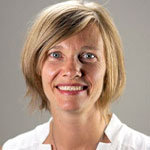 Dra. Alice Foucart
Experta en psicolingüística. Su investigación se centra en el procesamiento del lenguaje en primer y segundo idioma y también investiga cómo el lenguaje influye en otros aspectos cognitivos, como la toma de decisiones, el procesamiento de emociones y la cognición social. Lleva a cabo su investigación empírica utilizando metodologías conductuales y (electro-) fisiológicas, como el eye-tracker y potenciales evocados (ERPs).
Tiene un doctorado de la University of Edinburgh (Reino Unido) y de la Université de Provence (Francia), un Máster en Ciencias del Lenguaje (Université de Provence, Francia, University of York, Reino Unido) y una Licenciatura en inglés (Université de Lille, Francia). Trabajó sucesivamente como investigadora postdoctoral en tres instituciones del Reino Unido (Heriot-Watt University, University of Edinburgh y University of Bangor) y luego integró la Universitat Pompeu Fabra (España) antes de dirigir un proyecto Marie Sklodowska-Curie en Ghent University (Bélgica). Ahora es investigadora principal del grupo de investigación en Lingüística Aplicada a la Enseñanza de Lenguas Extranjeras (LAELE) en la Facultad de Lenguas y Educación, y del Centro de Investigación Nebrija en Cognición (CINC) de la Universidad Nebrija. Enseña Lingüística (francesa), Psicología, Neurociencia en los niveles de licenciatura y maestría.
Dra. Alice Foucart
Experta en psicolingüística. Su investigación se centra en el procesamiento del lenguaje en primer y segundo idioma y también investiga cómo el lenguaje influye en otros aspectos cognitivos, como la toma de decisiones, el procesamiento de emociones y la cognición social. Lleva a cabo su investigación empírica utilizando metodologías conductuales y (electro-) fisiológicas, como el eye-tracker y potenciales evocados (ERPs).
Tiene un doctorado de la University of Edinburgh (Reino Unido) y de la Université de Provence (Francia), un Máster en Ciencias del Lenguaje (Université de Provence, Francia, University of York, Reino Unido) y una Licenciatura en inglés (Université de Lille, Francia). Trabajó sucesivamente como investigadora postdoctoral en tres instituciones del Reino Unido (Heriot-Watt University, University of Edinburgh y University of Bangor) y luego integró la Universitat Pompeu Fabra (España) antes de dirigir un proyecto Marie Sklodowska-Curie en Ghent University (Bélgica). Ahora es investigadora principal del grupo de investigación en Lingüística Aplicada a la Enseñanza de Lenguas Extranjeras (LAELE) en la Facultad de Lenguas y Educación, y del Centro de Investigación Nebrija en Cognición (CINC) de la Universidad Nebrija. Enseña Lingüística (francesa), Psicología, Neurociencia en los niveles de licenciatura y maestría.
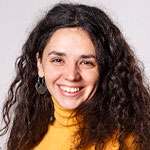 Cristina Herrero Fernández
Universidad Nebrija
Licenciada en Traducción e Interpretación por la Universidad de Salamanca, Máster Universitario en Lingüística aplicada a la enseñanza de ELE por la Universidad Nebrija y Doctora en Lingüística aplicada a la enseñanza de lenguas por la misma universidad. Ha trabajado como profesora, examinadora, traductora e intérprete en diferentes universidades e Institutos Cervantes de Asia, Europa y Oceanía. Actualmente es Coordinadora académica de Internacional de la Facultad de Lenguas y Educación de la Universidad Nebrija. En el ámbito de la investigación, ha realizado su tesis doctoral sobre los rasgos melódicos de la expresión de descortesía involuntaria en español L2 de trabajadores sinohablantes residentes en la Comunidad de Madrid. Entre sus intereses de investigación figuran la adquisición del componente fónico, la interacción entre fonética y pragmática en español y en chino, el uso de la música para la enseñanza de la entonación, los rasgos prosódicos del español L2 hablado por sinohablantes y la prosodia emocional en L1 y L2.
Cristina Herrero Fernández
Universidad Nebrija
Licenciada en Traducción e Interpretación por la Universidad de Salamanca, Máster Universitario en Lingüística aplicada a la enseñanza de ELE por la Universidad Nebrija y Doctora en Lingüística aplicada a la enseñanza de lenguas por la misma universidad. Ha trabajado como profesora, examinadora, traductora e intérprete en diferentes universidades e Institutos Cervantes de Asia, Europa y Oceanía. Actualmente es Coordinadora académica de Internacional de la Facultad de Lenguas y Educación de la Universidad Nebrija. En el ámbito de la investigación, ha realizado su tesis doctoral sobre los rasgos melódicos de la expresión de descortesía involuntaria en español L2 de trabajadores sinohablantes residentes en la Comunidad de Madrid. Entre sus intereses de investigación figuran la adquisición del componente fónico, la interacción entre fonética y pragmática en español y en chino, el uso de la música para la enseñanza de la entonación, los rasgos prosódicos del español L2 hablado por sinohablantes y la prosodia emocional en L1 y L2.Ha trabajado como investigadora en los proyectos INMIGRA_2_CM (La población migrante de la comunidad de Madrid: estudio multidisciplinar y herramientas para la integración sociolingüística) e INMIGRA3_CM (La población migrante en la Comunidad de Madrid: factores lingüísticos, comunicativos, culturales y sociales del proceso de integración y recursos de intervención) financiados por Comunidad de Madrid y la Unión Europea, así como en el proyecto EMILIA, "Emoción, memoria, identidad lingüística y aculturación emocional: su influencia en el aprendizaje de español como lengua de migración” del Programa Estatal de I +D+i orientada a los Retos de la Sociedad. Actualmente, además, colabora con el Grup de Recerca en Entonació i Parla de la Universidad de Barcelona en el proyecto del plan nacional “Prosodic Analysis of the Speech”, centrado en el desarrollo del modelo de Análisis Prosódico del Habla.
 Susana Llorián González
Universidad Complutense de Madrid
Doctora en Lingüística Aplicada por la Universidad Politécnica de Madrid, Máster en enseñanza del español como lengua extranjera (Universidad Nebrija) y Experto en Gestión de la Calidad. Es miembro del Consejo de Redacción del Plan Curricular del Instituto Cervantes y ha sido consultora en varios proyectos de diseño y desarrollo curricular de ELE. Actualmente, es profesora en la Facultad de Filología de la Universidad Complutense de Madrid. Es miembro de los grupos de investigación PAREFRAS y CORPEN. En la actualidad, sus líneas de investigación se centran en la lingüística aplicada a la traducción y a la interpretación, por un lado. Por otro, en la evaluación certificativa y la aplicación de corpus a la fraseología especializada al diseño de currículos de español como lengua extranjera con fines específicos y de sistemas de exámenes del español de especialidad.
Susana Llorián González
Universidad Complutense de Madrid
Doctora en Lingüística Aplicada por la Universidad Politécnica de Madrid, Máster en enseñanza del español como lengua extranjera (Universidad Nebrija) y Experto en Gestión de la Calidad. Es miembro del Consejo de Redacción del Plan Curricular del Instituto Cervantes y ha sido consultora en varios proyectos de diseño y desarrollo curricular de ELE. Actualmente, es profesora en la Facultad de Filología de la Universidad Complutense de Madrid. Es miembro de los grupos de investigación PAREFRAS y CORPEN. En la actualidad, sus líneas de investigación se centran en la lingüística aplicada a la traducción y a la interpretación, por un lado. Por otro, en la evaluación certificativa y la aplicación de corpus a la fraseología especializada al diseño de currículos de español como lengua extranjera con fines específicos y de sistemas de exámenes del español de especialidad.
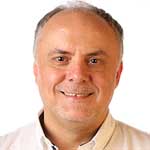 Carlos de Pablos Ortega
University of East Anglia
Profesor titular de español como lengua extranjera, lingüística y traducción audiovisual en la Universidad de East Anglia (Reino Unido) desde 2007. Es Doctor y Máster en Lingüística aplicada por la Universidad Nebrija (Madrid) y Licenciado en Filología inglesa por la Universidad Complutense de Madrid. Ha desarrollado su labor docente en la Universidad de Bangor (Reino Unido), en Woodside High School (EEUU), en el Centro de Estudios Hispánicos de la Universidad Nebrija en Madrid y en la Universidad de Sídney (Australia). Desde 2011 es profesor en el área de Pragmática en los másteres universitarios en Lingüística aplicada y en Didáctica de ELE de la Universidad Nebrija. Su labor docente ha sido reconocida con los premios a la excelencia docente en la Universidad de Sídney (2015-2016) y en la Universidad de East Anglia (2011 y 2021). Su investigación se centra en el ámbito de la pragmática contrastiva y de la traducción audiovisual. Ha publicado artículos en diversas revistas especializadas como Pragmatics, The Journal of Pragmatics o Pragmatics and Society. Es coautor del libro Seamos Pragmáticos: Introducción a la pragmática española (2014), Yale University Press. Desde 2016 dirige el proyecto SAAM en el que alumnos voluntarios crean subtítulos interlingüales e intralingüales para organizaciones sin ánimo de lucro.
Carlos de Pablos Ortega
University of East Anglia
Profesor titular de español como lengua extranjera, lingüística y traducción audiovisual en la Universidad de East Anglia (Reino Unido) desde 2007. Es Doctor y Máster en Lingüística aplicada por la Universidad Nebrija (Madrid) y Licenciado en Filología inglesa por la Universidad Complutense de Madrid. Ha desarrollado su labor docente en la Universidad de Bangor (Reino Unido), en Woodside High School (EEUU), en el Centro de Estudios Hispánicos de la Universidad Nebrija en Madrid y en la Universidad de Sídney (Australia). Desde 2011 es profesor en el área de Pragmática en los másteres universitarios en Lingüística aplicada y en Didáctica de ELE de la Universidad Nebrija. Su labor docente ha sido reconocida con los premios a la excelencia docente en la Universidad de Sídney (2015-2016) y en la Universidad de East Anglia (2011 y 2021). Su investigación se centra en el ámbito de la pragmática contrastiva y de la traducción audiovisual. Ha publicado artículos en diversas revistas especializadas como Pragmatics, The Journal of Pragmatics o Pragmatics and Society. Es coautor del libro Seamos Pragmáticos: Introducción a la pragmática española (2014), Yale University Press. Desde 2016 dirige el proyecto SAAM en el que alumnos voluntarios crean subtítulos interlingüales e intralingüales para organizaciones sin ánimo de lucro.
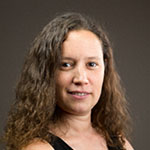 Margarita Planelles Almeida
Universidad Nebrija
Doctora en Filosofía por la Universidad de Sevilla y Máster Universitario en Lingüística Aplicada a la Enseñanza del Español como Lengua Extranjera por la Universidad Nebrija. Profesora del Departamento de Lenguas Aplicadas de la Universidad Nebrija y coordinadora de la Cátedra Global Nebrija-Santander del español como lengua de migrantes y refugiados.
Margarita Planelles Almeida
Universidad Nebrija
Doctora en Filosofía por la Universidad de Sevilla y Máster Universitario en Lingüística Aplicada a la Enseñanza del Español como Lengua Extranjera por la Universidad Nebrija. Profesora del Departamento de Lenguas Aplicadas de la Universidad Nebrija y coordinadora de la Cátedra Global Nebrija-Santander del español como lengua de migrantes y refugiados. Sus principales intereses de investigación se centran en la psicolingüística y la adquisición de la competencia fonológica en L2. Está especialmente interesada en aspectos relacionados con el acento extranjero, la comprensibilidad y los diferentes aspectos de la pronunciación en relación con estos conceptos, así como sus implicaciones para la enseñanza de lenguas. En el ámbito específico de la investigación en didáctica, ha trabajado en el desarrollo, implementación y evaluación metodológica de enfoques performativos (teatro aplicado a la enseñanza de lenguas), especialmente en contextos de migración y refugio, y su eficacia para el desarrollo de la competencia lingüística, así como su efecto en el empoderamiento lingüístico de los aprendices. Como miembro del grupo de investigación LAELE de la Universidad Nebrija, ha participado en proyectos del Programa Estatal de Investigación, Desarrollo e Innovación (“Emoción, memoria, identidad lingüística y aculturación emocional: su influencia en el aprendizaje de español como lengua de migración”), en dos proyectos de la red de grupos de investigación INMIGRA, financiados por la Convocatoria de Investigación de la Comunidad de Madrid en Ciencias Sociales y Humanidades y por el Fondo Social Europeo (IN.MIGRA3-CM e IN.MIGRA2-CM), y en el proyecto “Ser y Estar: identidad y emoción en la enseñanza de ELE en contextos interculturales a través del teatro”, financiado por la Fundación “La Caixa” (convocatoria Interculturalidad y acción social).
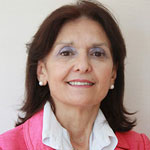 Mª Luisa Regueiro Rodríguez
Universidad Complutense de Madrid
Doctora en Filología. Profesora Titular en el Departamento de Lengua Española y Teoría de la Literatura de la Universidad Complutense de Madrid, del que ha sido Secretaria Académica y ha coordinado los másteres universitarios de Formación de profesores de Lengua Española y Lenguas Clásicas. Formó parte del equipo lexicográfico del DRAE, fue profesora investigadora de la Universidad de Buenos Aires y de la Tecnológica Nacional (Argentina) y Coordinadora Editorial de Fondo de Cultura Económica–España. Su investigación se centra en semántica, gramática, didáctica, Lingüística Aplicada a ELE y español académico; líneas en las que ha dirigido catorce tesis doctorales y cerca de un centenar de trabajos de fin de máster. Ha impartido e imparte cursos de formación de profesores en centros y universidades nacionales y extranjeras (Instituto Cervantes, Centro Complutense para la Enseñanza de Español, Escuela Complutense Latinoamericana, Universidad para Mayores UCM, UAM, UAH, UIMP, UBA, UNLP, UNNE, etc.). Entre sus libros destacan Unidades, estrategias y técnicas didácticas ELE, La programación didáctica ELE, La sinonimia, La meronimia, El español académico, Introducción a la Lexicografía, etc.; y artículos como “Algunas reflexiones sobre la enseñanza-aprendizaje del léxico en ELE”, “Sinonimia y carga de procesamiento: Datos empíricos en una tarea de decisión léxica de nativos y no nativos”, “Enseñanza-aprendizaje de las relaciones léxico-semánticas en ELE”, etc.
Mª Luisa Regueiro Rodríguez
Universidad Complutense de Madrid
Doctora en Filología. Profesora Titular en el Departamento de Lengua Española y Teoría de la Literatura de la Universidad Complutense de Madrid, del que ha sido Secretaria Académica y ha coordinado los másteres universitarios de Formación de profesores de Lengua Española y Lenguas Clásicas. Formó parte del equipo lexicográfico del DRAE, fue profesora investigadora de la Universidad de Buenos Aires y de la Tecnológica Nacional (Argentina) y Coordinadora Editorial de Fondo de Cultura Económica–España. Su investigación se centra en semántica, gramática, didáctica, Lingüística Aplicada a ELE y español académico; líneas en las que ha dirigido catorce tesis doctorales y cerca de un centenar de trabajos de fin de máster. Ha impartido e imparte cursos de formación de profesores en centros y universidades nacionales y extranjeras (Instituto Cervantes, Centro Complutense para la Enseñanza de Español, Escuela Complutense Latinoamericana, Universidad para Mayores UCM, UAM, UAH, UIMP, UBA, UNLP, UNNE, etc.). Entre sus libros destacan Unidades, estrategias y técnicas didácticas ELE, La programación didáctica ELE, La sinonimia, La meronimia, El español académico, Introducción a la Lexicografía, etc.; y artículos como “Algunas reflexiones sobre la enseñanza-aprendizaje del léxico en ELE”, “Sinonimia y carga de procesamiento: Datos empíricos en una tarea de decisión léxica de nativos y no nativos”, “Enseñanza-aprendizaje de las relaciones léxico-semánticas en ELE”, etc.
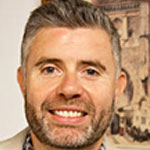 Adolfo Sánchez Cuadrado
Universidad de Granada
Licenciado en Traducción e Interpretación por la Universidad de Granada, Máster en Foreign Language Pedagogy por la Universidad de Delaware y Doctor en Lingüística por la Universidad de Granada. Desde 2019 es profesor en el Departamento de Lingüística General y Teoría de la Literatura de la Universidad de Granada. Anteriormente fue profesor de Lengua Española, ELE y Traducción en la Universidad de Delaware, en el Centro de Lenguas Modernas de la Universidad de Granada y en University College London. Colabora en títulos de máster con asignaturas relacionadas con la enseñanza de lenguas.
Adolfo Sánchez Cuadrado
Universidad de Granada
Licenciado en Traducción e Interpretación por la Universidad de Granada, Máster en Foreign Language Pedagogy por la Universidad de Delaware y Doctor en Lingüística por la Universidad de Granada. Desde 2019 es profesor en el Departamento de Lingüística General y Teoría de la Literatura de la Universidad de Granada. Anteriormente fue profesor de Lengua Española, ELE y Traducción en la Universidad de Delaware, en el Centro de Lenguas Modernas de la Universidad de Granada y en University College London. Colabora en títulos de máster con asignaturas relacionadas con la enseñanza de lenguas.
Sus áreas de investigación son la traducción pedagógica, la mediación lingüística, la lingüística cognitiva y la formación del profesorado de lenguas extranjeras. Entre sus publicaciones destacan su participación en las obras colectivas Lingüística cognitiva y ELE (Routledge, 2019), Mediación en el aprendizaje de lenguas. Estrategias y recursos (coordinador; Anaya, 2022) y Enriching 21st century language education: The CEFR Companion Volume, examples from practice (Consejo de Europa, 2022), así como en diversas publicaciones periódicas como Journal of Spanish Language Teaching (Routledge, 2017) o Círculo de Lingüística Aplicada a la Comunicación (Universidad Complutense de Madrid, 2021). Forma parte del grupo de investigación HUM559 Pragmática y aprendizaje de lenguas (IP: Alejandro Castañeda Castro), en el que participa en el proyecto I + D "Gramática figurativo-constructiva del tiempo y aspecto verbales en inglés y español (IMAGINE)" financiado por el Ministerio de Ciencia e Innovación de España (Ref.: PID2021-128771OB-I00).
Ha formado a docentes de lenguas en diversas instituciones como el Instituto Cervantes, centros de formación del profesorado o la Universidad Internacional Menéndez Pelayo (UIMP), en calidad de director de cursos, ponente y creador de materiales. Colaboró como traductor principal en la versión oficial al español del Volumen complementario del Marco Común Europeo de Referencia para las Lenguas (Consejo de Europa, 2020; Instituto Cervantes, 2021).
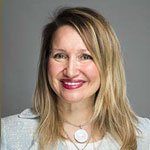 Rocío Santamaría Martínez
Universidad Nebrija
Doctora en Humanidades por la Universidad Carlos III de Madrid (UC3M). Es la responsable del Centro de Escritura Nebrija y profesora de Técnicas para escribir correctamente en la misma universidad. Durante 12 años fue profesora asociada de la UC3M donde impartió las asignaturas de Técnicas de expresión oral y escrita y Lengua española. Es especialista en ELE, ha colaborado e impartido cursos de formación de profesores en el Instituto Cervantes, en la Fundación Ortega y Gasset y en diferentes universidades de España, Hungría, Portugal y Argentina. Forma parte del equipo docente de los másteres en enseñanza de español de la Universidad Nebrija y ha colaborado en el de la UC3M, en el de la UNED y en la Universidad Rey Juan Carlos. Obtuvo el premio de investigación ASELE 2009. Ha publicado artículos relacionados con la aplicación de la literatura en los cursos de ELE y la integración de actividades comunicativas de la lengua.
Rocío Santamaría Martínez
Universidad Nebrija
Doctora en Humanidades por la Universidad Carlos III de Madrid (UC3M). Es la responsable del Centro de Escritura Nebrija y profesora de Técnicas para escribir correctamente en la misma universidad. Durante 12 años fue profesora asociada de la UC3M donde impartió las asignaturas de Técnicas de expresión oral y escrita y Lengua española. Es especialista en ELE, ha colaborado e impartido cursos de formación de profesores en el Instituto Cervantes, en la Fundación Ortega y Gasset y en diferentes universidades de España, Hungría, Portugal y Argentina. Forma parte del equipo docente de los másteres en enseñanza de español de la Universidad Nebrija y ha colaborado en el de la UC3M, en el de la UNED y en la Universidad Rey Juan Carlos. Obtuvo el premio de investigación ASELE 2009. Ha publicado artículos relacionados con la aplicación de la literatura en los cursos de ELE y la integración de actividades comunicativas de la lengua.
Comisión académica
La Comisión Académica del programa de doctorado está compuesta por:
- El coordinador del programa de Doctorado, que actuará como presidente. Dra. Ocarina Masid Blanco. [+info]
- Un profesor-investigador adscrito al programa de doctorado, a elección del coordinador, que actuará como Secretario Dra. Susana Martin Leralta. [+info]
- Al menos otro profesor-investigador adscrito al programa de doctorado. Dra. Eirini Mavrou [+info]
Todos los miembros de la Comisión estarán en posesión del título de Doctor y formarán parte del equipo investigador de la memoria verificada del programa de doctorado.
Academic committee
The Academic Committee of the doctoral program is made up of:
- The coordinator of the Doctorate program, who will act as chairperson: Dr. Ocarina Masid Blanco.
- A professor-researcher assigned to the doctorate program, chosen by the coordinator, who will act as Secretary: Dra. Susana Martin Leralta.
- At least one other professor-researcher assigned to the doctoral program: Dr. Eirini Mavrou.
All members of the Committee will have a Doctorate degree and will be part of the research team of the doctoral program's verified report.
Perfil investigador
Grupo de investigación en Lingüística Aplicada a la Enseñanza de Lenguas Extranjeras (LAELE)Research profile
Research group in Linguistics Applied to the Teaching of Foreign Languages (LAELE)Employability
Main career opportunities
Most of the doctors completing the Applied Linguistics programme become academics and researchers at Spanish and international universities.
Universities where doctors graduating from the Universidad Nebrija are currently working
Agreements
Activities in Applied Linguistics to Language Teaching
Visit all the Activities of the School of Language and Education
18th Multilingual Classroom on Environment at Nebrija University.
This meeting, organized by the School of Languages and Education, in its interest to promote the use of foreign languages in different areas of society and business, aims to raise awareness in the university community of the importance of the commitment we all have to assume due to our commitment to building a Europe in which its citizens make intercomprehension efforts.


 Doctoral Seminars
Doctoral Seminars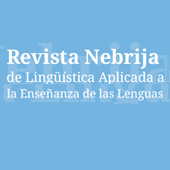 Magazine Of
Magazine Of 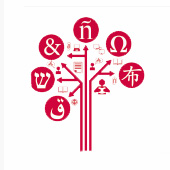 Applied Linguistics Conference
Applied Linguistics Conference